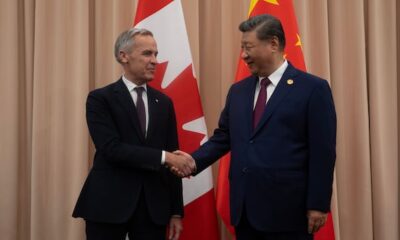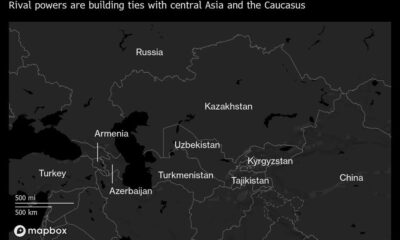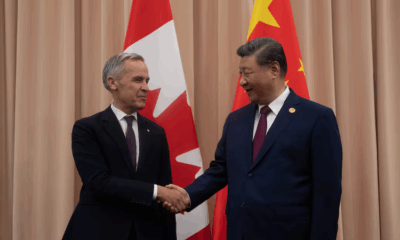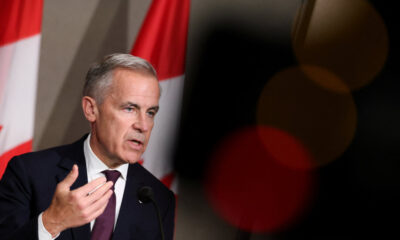Business
China to Build Kazakhstan’s Third Nuclear Power Plant
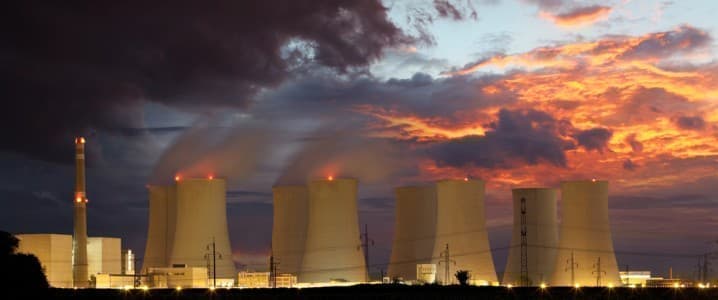
Kazakhstan has formally announced that China will construct the country’s third nuclear power plant, further solidifying Beijing’s influence over its nuclear energy landscape. At a press conference on July 31, Kazakhstan’s First Deputy Prime Minister Roman Sklyar confirmed that the project will proceed with the participation of the state-run China National Nuclear Corporation (CNNC). This decision follows Kazakhstan’s earlier agreement to award the second nuclear plant to CNNC, announced just before the visit of Chinese President Xi Jinping to Astana for the China–Central Asia summit.
The strategic choice reflects Kazakhstan’s growing inclination to diversify its nuclear partnerships. While the country awarded its first nuclear power plant project to Rosatom, the Russian state nuclear energy corporation, the latest developments suggest a calculated approach to balance relations with major powers. Sklyar noted, “Our colleagues from the relevant agency are currently working on this matter,” indicating ongoing collaboration between Kazakhstan and China.
Shifting Alliances in Nuclear Energy
Kazakhstan’s decision to engage CNNC comes at a time when economic pressures on Russia complicate its ability to finance major infrastructure projects. The first nuclear plant, contracted to Rosatom, is expected to be completed by 2035 or later, heavily reliant on Russian export financing, which is uncertain due to the ongoing conflict in Ukraine and associated sanctions. Kazakh lawmaker Ermurat Bapi highlighted the advantages of partnering with China, stating, “CNNC is backed by China’s robust industrial base, ample funding, and, most importantly, freedom from Western sanctions.”
The implications of Kazakhstan’s nuclear strategy are profound. While Rosatom remains the contractor for the initial plant, Bapi suggests that China is likely to complete its projects sooner. “The de facto first nuclear plant in Kazakhstan will most likely be built by China, not Russia,” he remarked. Political analyst Dosym Satpaev echoed this sentiment, emphasizing that Russia’s financial difficulties hinder its capacity to fulfill commitments.
Geopolitical Considerations and Future Prospects
Kazakhstan’s nuclear ambitions gained momentum during a controversial referendum in October 2024, where over 71 percent of voters reportedly supported the development of nuclear energy. Despite allegations of ballot-stuffing and low turnout in major cities, the government has leveraged the referendum results to attract international investment. President Qasym-Zhomart Toqaev has expressed openness to partnerships with other nations, including South Korea and France. Yet, the increasing reliance on Chinese technology and funding may strain these relationships.
Satpaev cautioned that Kazakhstan’s strategic pivot toward China’s nuclear capabilities poses risks to its sovereignty. “Building a nuclear power plant is never just about energy. It’s a geopolitical project,” he explained, warning that dependence on external partners could compromise the nation’s independence. He pointed out that Kazakhstan’s energy strategy is increasingly about “picking winners in critical sectors while avoiding excessive dependency.”
Kazakhstan’s proactive approach to its nuclear future is indicative of its evolving foreign policy. By choosing China as a primary partner, the country is not merely responding to Russian volatility; it is asserting itself on the geopolitical stage. This shift in alliances could have substantial ramifications for Kazakhstan’s role in regional energy diplomacy and security, particularly as it navigates the complexities of international relations in a changing global landscape.
As Kazakhstan prepares to announce a location for the third nuclear plant by the end of 2025, it remains to be seen how this new chapter in its nuclear energy strategy will unfold. The nation, already a leading uranium producer, is leveraging its strategic position to enhance its energy security while balancing its relationships with both Russia and China.
-

 Politics4 weeks ago
Politics4 weeks agoSecwepemc First Nation Seeks Aboriginal Title Over Kamloops Area
-

 World5 months ago
World5 months agoScientists Unearth Ancient Antarctic Ice to Unlock Climate Secrets
-

 Entertainment5 months ago
Entertainment5 months agoTrump and McCormick to Announce $70 Billion Energy Investments
-

 Science5 months ago
Science5 months agoFour Astronauts Return to Earth After International Space Station Mission
-

 Lifestyle5 months ago
Lifestyle5 months agoTransLink Launches Food Truck Program to Boost Revenue in Vancouver
-

 Technology3 months ago
Technology3 months agoApple Notes Enhances Functionality with Markdown Support in macOS 26
-

 Lifestyle3 months ago
Lifestyle3 months agoManitoba’s Burger Champion Shines Again Amid Dining Innovations
-

 Top Stories2 months ago
Top Stories2 months agoUrgent Update: Fatal Crash on Highway 99 Claims Life of Pitt Meadows Man
-

 Politics4 months ago
Politics4 months agoUkrainian Tennis Star Elina Svitolina Faces Death Threats Online
-

 Sports5 months ago
Sports5 months agoSearch Underway for Missing Hunter Amid Hokkaido Bear Emergency
-

 Politics5 months ago
Politics5 months agoCarney Engages First Nations Leaders at Development Law Summit
-

 Technology5 months ago
Technology5 months agoFrosthaven Launches Early Access on July 31, 2025

